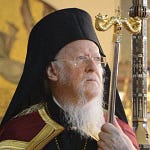As the Filipino bishops’ conference prepares to vote on instituting the permanent diaconate, JD and Ed talk about what the deaconate is and why we have deacons.
Ed plays a round of ‘Name that deacon!’
This episode of The Pillar Podcast is brought to you by the University of Mary. Become a True Leader with an MBA from the University of Mary. Pillar paid subscribers receive an exclusive $10,000 scholarship.
Learn more at pillar.umary.edu











